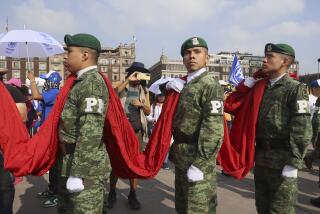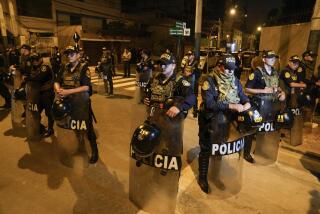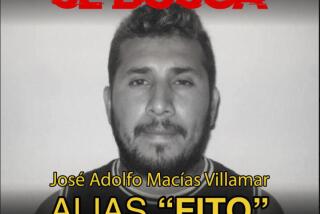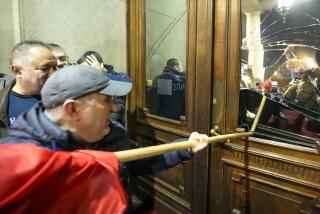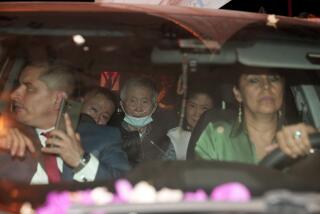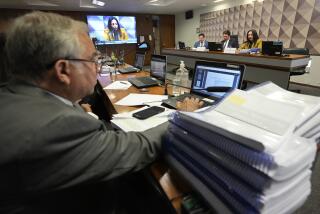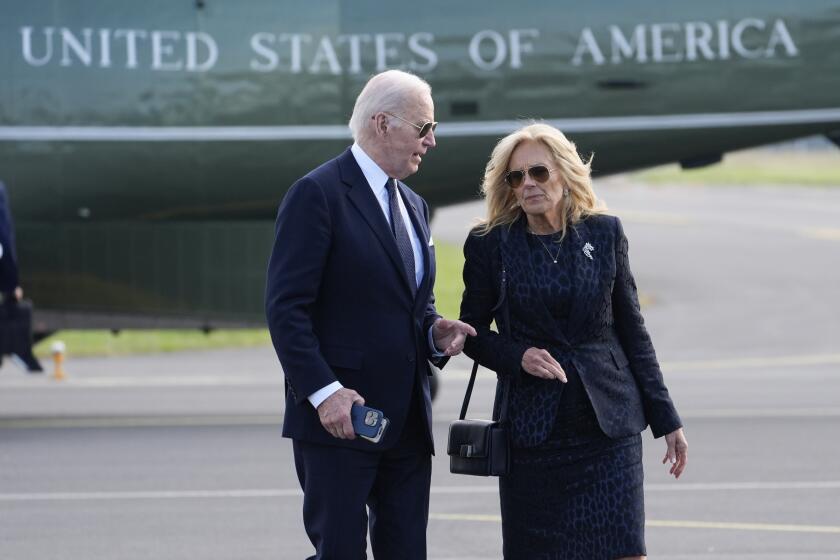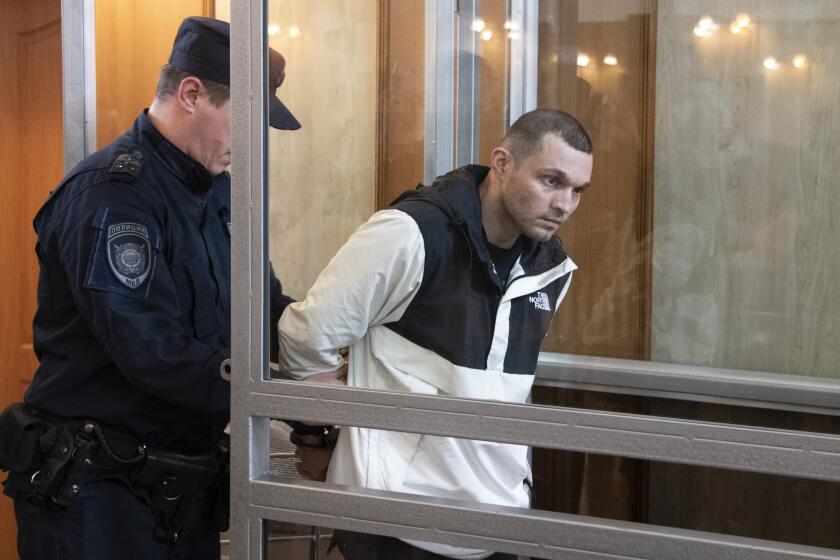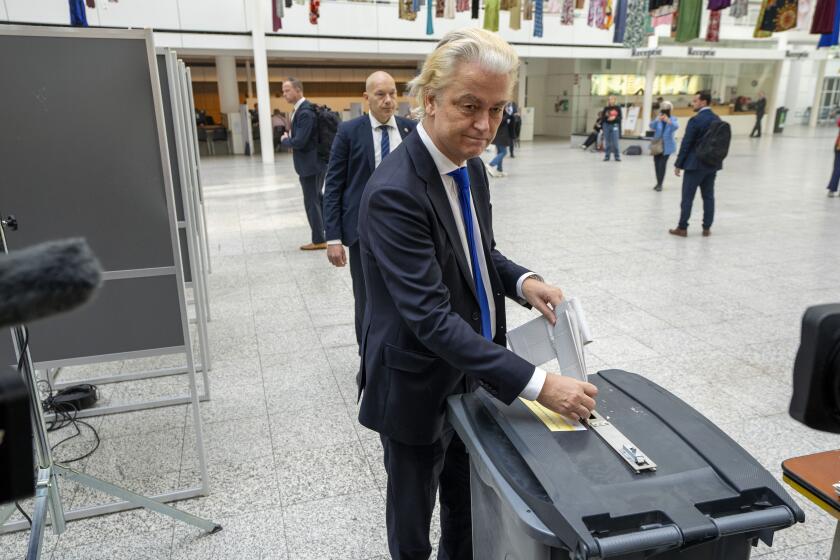Rebel Bombs Complicate Controversial Peru Election : Terrorism: Sendero Luminoso strikes as voters prepare to replace Congress shut down in president’s ‘self-coup.’
The Sendero Luminoso is back with a vengeance, announcing its presence in recent days in the flash and roar of deadly car bombs.
It is the first major terrorist offensive in Lima since police captured Sendero Luminoso leader Abimael Guzman in early September, and it has erupted just in time to complicate a crucial and controversial electoral process. Peruvians vote Sunday for a “constituent congress” to replace the Congress that President Alberto Fujimori shut down on April 5 in a military-backed “self-coup.”
Fujimori hopes the election will restore the mantle of democracy to his authoritarian regime at a moment when his military support shows signs of erosion--notably, a coup attempt late last week by disgruntled army officers.
Two days after the military rebellion fizzled without bloodshed, the Maoist rebels of Sendero Luminoso (Shining Path) began exploding bombs around Lima. Analysts said the offensive was aimed at disrupting Sunday’s elections and proving that Guzman’s guerrillas remain fearsome and determined even with their leader in jail.
In July, a car-bomb campaign killed more than 40 people in Lima, spreading panic and prompting speculation that the Sendero Luminoso was heading for a cataclysmic “final offensive.” After Guzman and other top leaders were captured and sentenced to life in prison, some commentators predicted that the revolutionary organization would never recover from the blow.
But the bombings that began Sunday have wounded dozens of people around the city, making it clear that announcements of the Sendero Luminoso’s demise are premature. One powerful car bomb, containing hundreds of pounds of explosives, killed five people and injured nearly 20 others Wednesday in the affluent suburb of Miraflores, Reuters news service reported. The blast damaged several buildings and shattered glass up to three blocks away.
“The Shining Path is trying to overshadow the electoral process . . . with these kinds of mad actions,” Fujimori said.
Fernando Rospigliosi, a political analyst with the private Institute for Peruvian Studies, said the offensive proves the Sendero Luminoso’s continuing terrorist capability, “but I think it is weaker than previous offensives.”
He said leadership factions that opposed Guzman’s policy of ruthless killing may have gained more influence in the group and may be trying “to cause fear but not kill many people.” On the other hand, Rospigliosi said, the Sendero Luminoso may indeed be crippled and unable to muster the lethal firepower of July.
In further efforts to disrupt the elections, the Sendero Luminoso called an “armed strike” Wednesday, warning workers to stay home and vehicles to stay off the streets for the rest of the week. Traffic was lighter than usual but most employees made it to work.
The government declared Friday and Saturday holidays. It said many voters needed the time to reach districts where they are registered. But the unexpected holidays clearly were aimed at defusing the armed strike.
In Sunday’s voting, Peruvians will elect an 80-member legislative chamber that is to rewrite the constitution and perform other legislative functions until the end of Fujimori’s term in 1995. More than 1,400 candidates from 18 movements and parties are running, and groups backing Fujimori are expected to win a majority of seats.
Most important opposition groups are boycotting the election, including former President Fernando Belaunde’s Popular Action party, former President Alan Garcia’s Aprista party and novelist Mario Vargas Llosa’s Liberty party. Vargas Llosa lost to Fujimori in the 1990 presidential elections.
The opposition parties had a majority in the dissolved Congress, which Fujimori accused of corruption and irresponsibility. Most Peruvians agreed with him, according to opinion polls.
More to Read
More to Read
More to Read
Start your day right
Sign up for Essential California for news, features and recommendations from the L.A. Times and beyond in your inbox six days a week.
You may occasionally receive promotional content from the Los Angeles Times.
